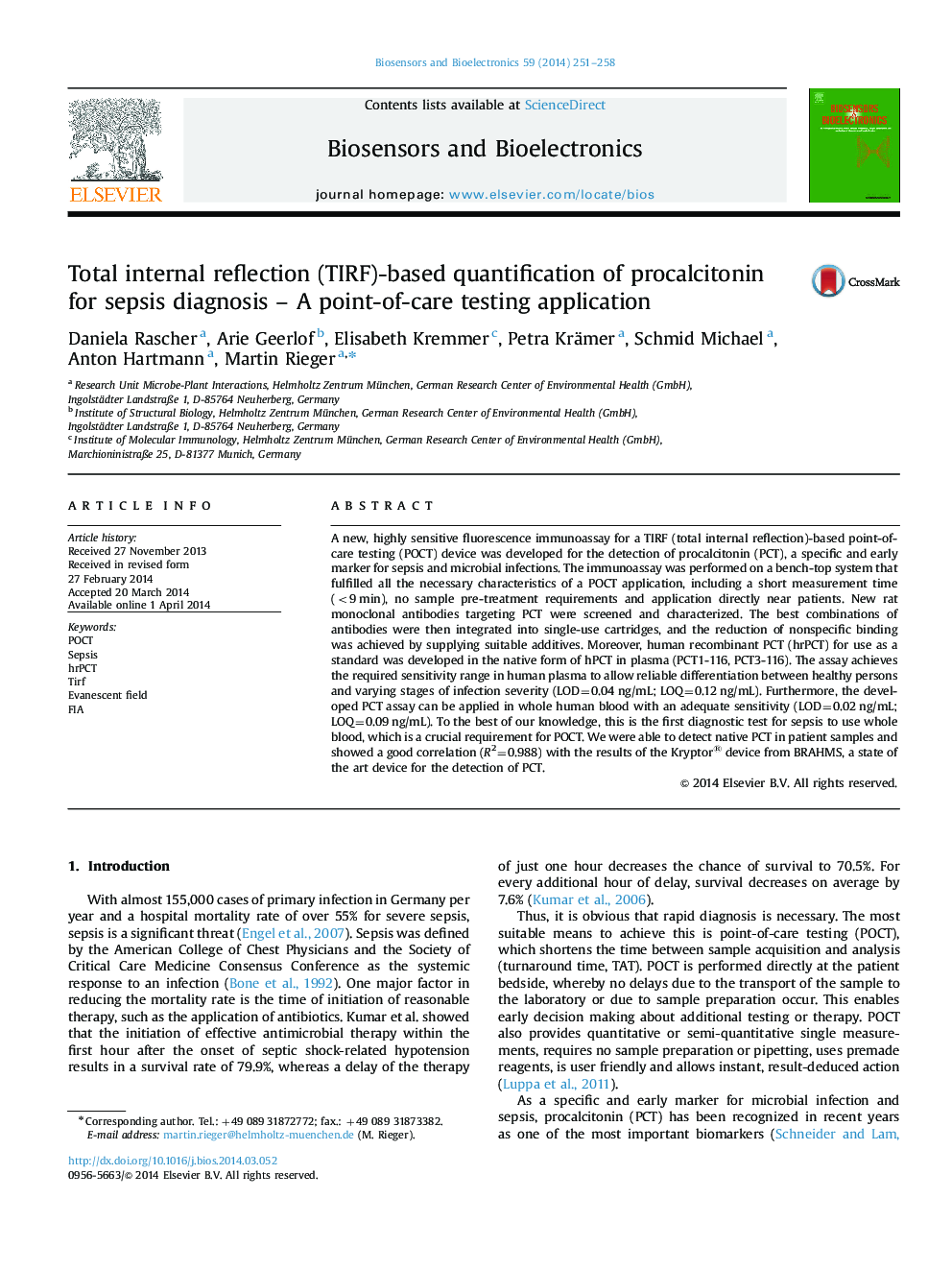| Article ID | Journal | Published Year | Pages | File Type |
|---|---|---|---|---|
| 7233535 | Biosensors and Bioelectronics | 2014 | 8 Pages |
Abstract
A new, highly sensitive fluorescence immunoassay for a TIRF (total internal reflection)-based point-of-care testing (POCT) device was developed for the detection of procalcitonin (PCT), a specific and early marker for sepsis and microbial infections. The immunoassay was performed on a bench-top system that fulfilled all the necessary characteristics of a POCT application, including a short measurement time (<9Â min), no sample pre-treatment requirements and application directly near patients. New rat monoclonal antibodies targeting PCT were screened and characterized. The best combinations of antibodies were then integrated into single-use cartridges, and the reduction of nonspecific binding was achieved by supplying suitable additives. Moreover, human recombinant PCT (hrPCT) for use as a standard was developed in the native form of hPCT in plasma (PCT1-116, PCT3-116). The assay achieves the required sensitivity range in human plasma to allow reliable differentiation between healthy persons and varying stages of infection severity (LOD=0.04Â ng/mL; LOQ=0.12Â ng/mL). Furthermore, the developed PCT assay can be applied in whole human blood with an adequate sensitivity (LOD=0.02Â ng/mL; LOQ=0.09Â ng/mL). To the best of our knowledge, this is the first diagnostic test for sepsis to use whole blood, which is a crucial requirement for POCT. We were able to detect native PCT in patient samples and showed a good correlation (R2=0.988) with the results of the Kryptor® device from BRAHMS, a state of the art device for the detection of PCT.
Keywords
Related Topics
Physical Sciences and Engineering
Chemistry
Analytical Chemistry
Authors
Daniela Rascher, Arie Geerlof, Elisabeth Kremmer, Petra Krämer, Michael Schmid, Anton Hartmann, Martin Rieger,
